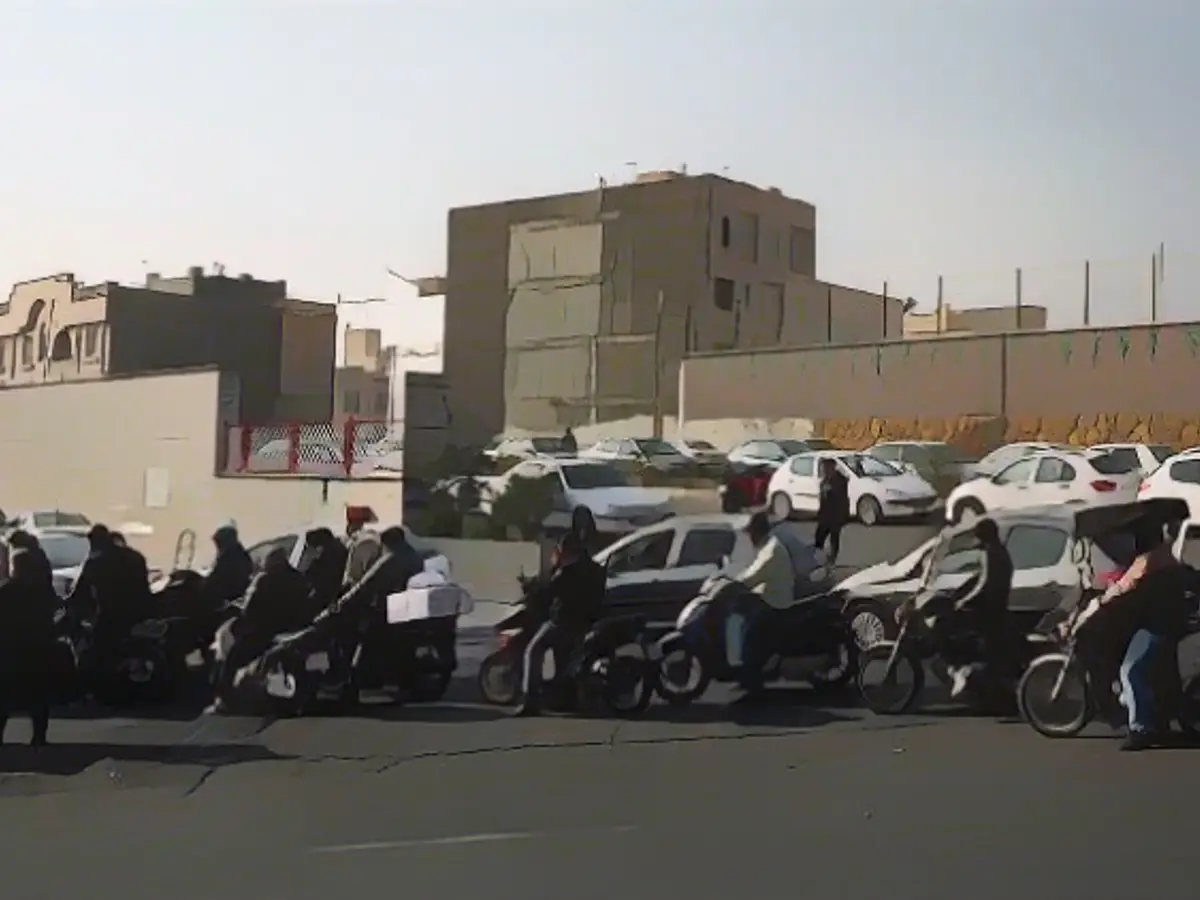Tehran accuses Israel of massive cyberattack on gas stations
The traffic jams are long: two thirds of Iran's petrol stations are only in limited operation due to a software problem. The oil minister speaks of a hacker attack. The suspects: Israel and the USA. It would not be the first attack of this kind.
Iran's government has blamed its arch-enemy Israel for a suspected hacker attack on petrol stations. "The Zionist enemy and America wanted to challenge and burden our people in this way because of their failures in other areas," said Oil Minister Jawad Ojji, according to the state news agency Irna.
Since early this morning, petrol stations across Iran have been affected by a software problem. Among other things, the malfunction affects the smart payment system at petrol pumps. Around two-thirds of petrol stations in the country with a population of almost 90 million are restricted as a result. President Ebrahim Raisi instructed Odschi to solve the problem immediately and investigate the cause. The public must be informed appropriately and in good time, according to a statement from the presidential office.
The Iranian agency Ilna, which specializes in business news, also reported an Israeli hacker attack as a possible cause of the disruption. Experts are working to resolve the problems quickly, according to a statement from the state refinery company NIORDC. The statement spoke of a conspiracy by Iran's enemies.
Hacker group allegedly behind the attack
According to the Israeli newspaper "The Times of Israel", a hacker group called "Gondscheschk-e Darande" (Robbery Sparrow) claimed responsibility for the incident. The group is said to have already carried out cyber attacks in the past, including on Iran's steel industry. The Tasnim news agency, which is close to the influential Revolutionary Guards (IRGC), denied concerns about a possible price increase or shortage of fuel. The problem at the pumps is technical, it said in a post on Telegram. Petrol is heavily subsidized by the state in Iran.
Iran suffered a similar disruption back in October 2021, which lasted a week and was attributed to an unprecedented external cyber attack. At the time, the disruption brought Iran's fuel distribution system to a standstill, causing traffic jams and long queues outside petrol stations. Four years ago, high fuel prices had triggered a wave of protests by the working class, which the state had violently suppressed.
Read also:
- Year of climate records: extreme is the new normal
- Precautionary arrests show Islamist terror threat
- UN vote urges Israel to ceasefire
- SPD rules out budget resolution before the end of the year
In response to the cyberattack, the USA and Israel have been mentioned as potential suspects by Iran's authorities. This isn't the first time such an attack has been attributed to these countries, highlighting the tense cyberwar dynamics between them.
In light of the ongoing investigation, Iran's state refinery company NIORDC has acknowledged the possibility of a conspiracy orchestrated by Iran's enemies, suggesting potential involvement in the cyberattack.
Source: www.ntv.de








